Nesting osprey buried by April snowfalls at Loch Garten
- Published
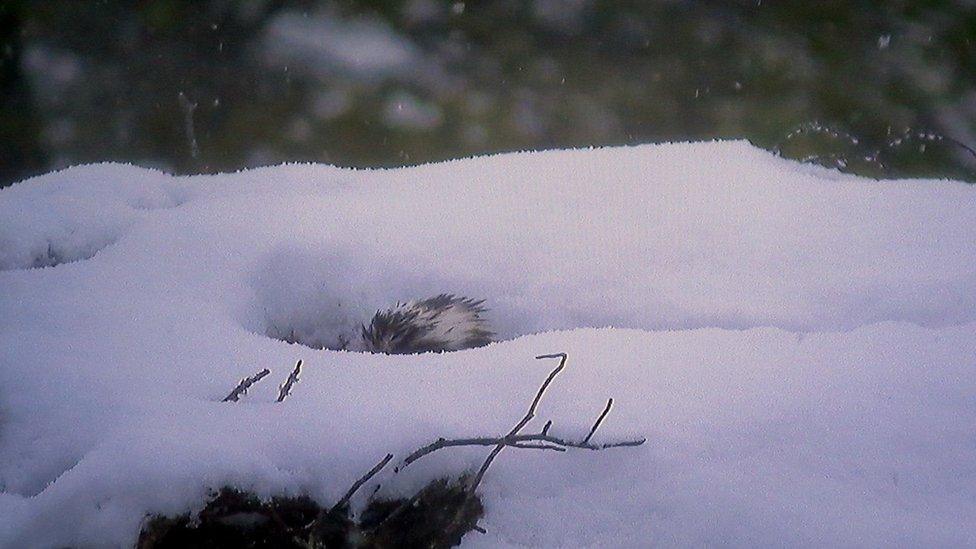
The top of EJ's head poking up above the snow on her nest
A female osprey has refused to give up on her clutch of three eggs even after her nest was smothered in snow.
EJ, who is 20-years-old this year, has been visiting RSPB Scotland's Loch Garten reserve near Grantown on Spey in the Cairngorms for 15 years.
The bird of prey migrates from west Africa.
Staff at the reserve said EJ had experienced wintry conditions before and the snow could even act as an insulator.
However, the staff added that they could not remember EJ, whose large nest is in a tree, encountering so much snow during her visits to the loch.
'Snow doughnut'
The Cairngorms have experienced heavy snow falls this week.
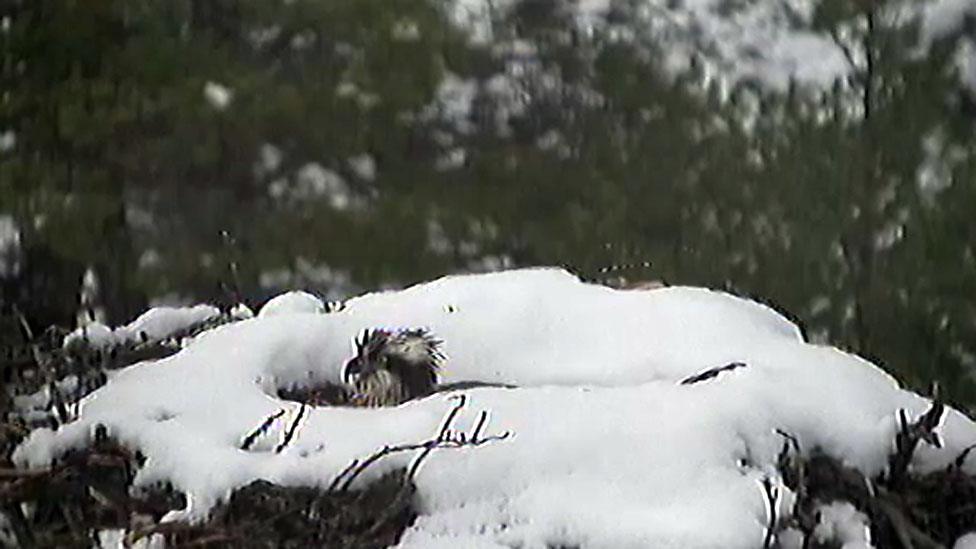
EJ and her mate arrived in Scotland earlier this month after migrating from west Africa
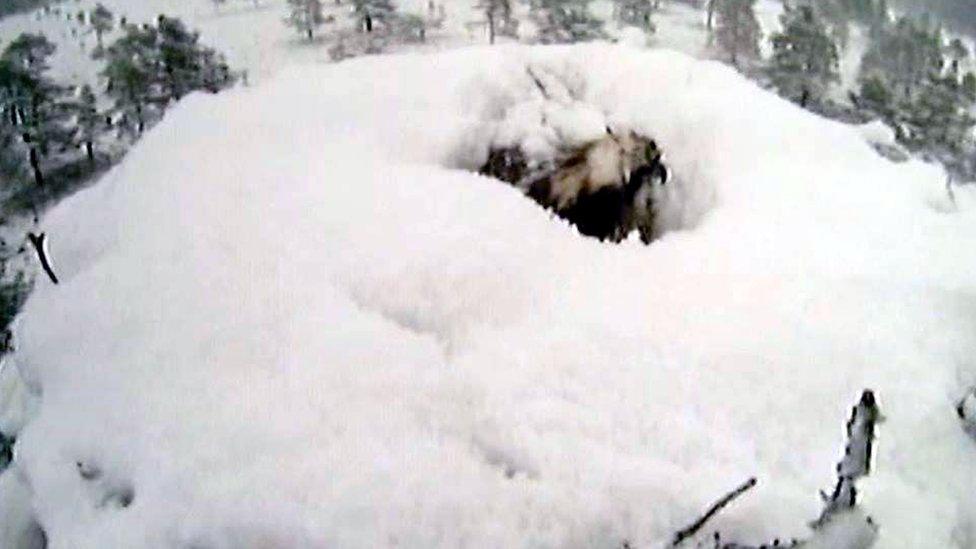
The RSPB said EJ had previously experienced wintry conditions at the loch
Loch Garten reserve's Julie Quirie said: "I've worked at the centre for 10 years and I just can't remember the snow ever being so bad.
"Poor old EJ does look pretty miserable in her snow doughnut, as we like to call it, but this is her 15th season here at Loch Garten and she's well used to the worst of Scottish spring weather.
"And it's really not as bad as it seems - snow is a good insulator, so as long as this snow snap doesn't persist, EJ and her eggs should be fine.
"It still looks really uncomfortable to us though."
You might also like:
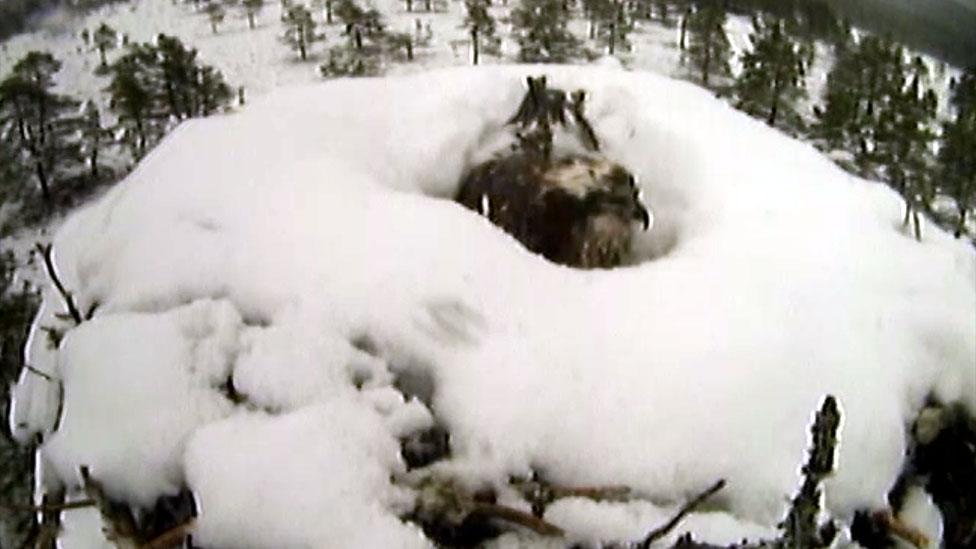
The snow should act as an insulator for the eggs
EJ and her mate Odin are the most successful breeding pair at the Loch Garten site.
Over previous seasons 17 of their chicks have fledged.
Ospreys migrate from west Africa to Scotland to breed and can be seen hunting for fish from rivers and lochs.
Ms Quirie said: "All being well, EJ and Odin should be proud parents by the middle of May, when hopefully the skies will be blue and the temperature rising."
- Published4 April 2017
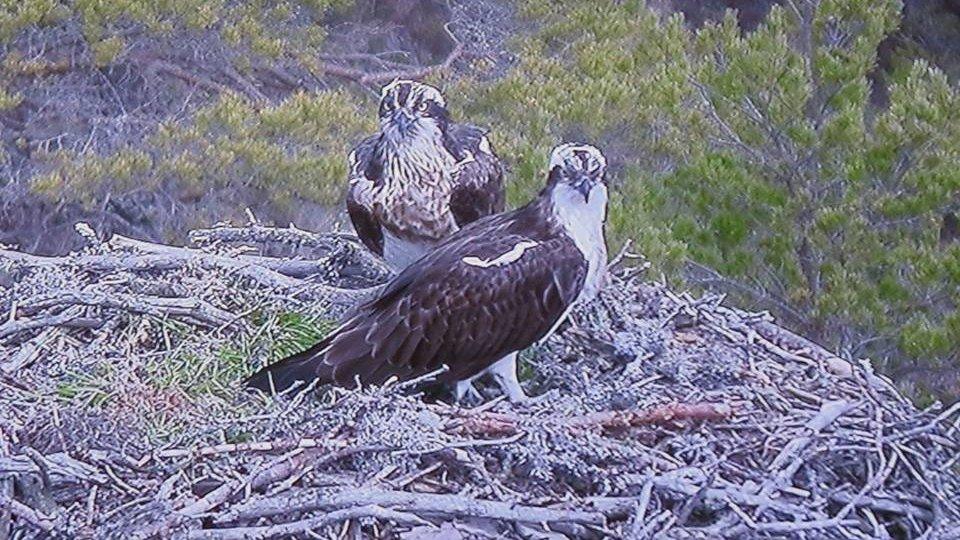
- Published16 May 2016
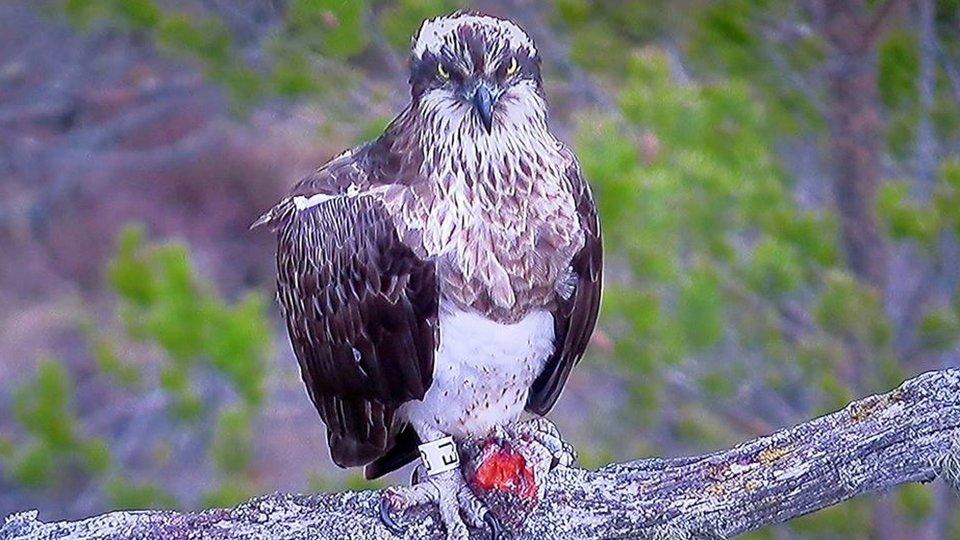
- Published8 April 2016
